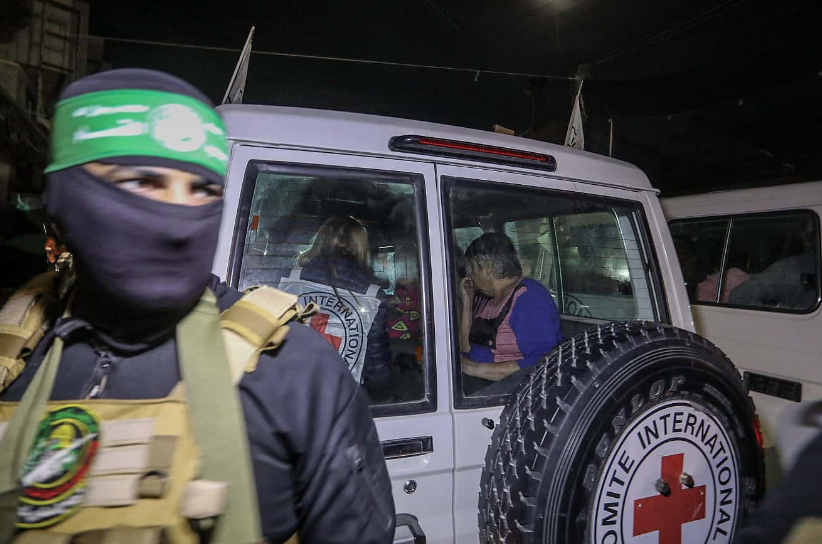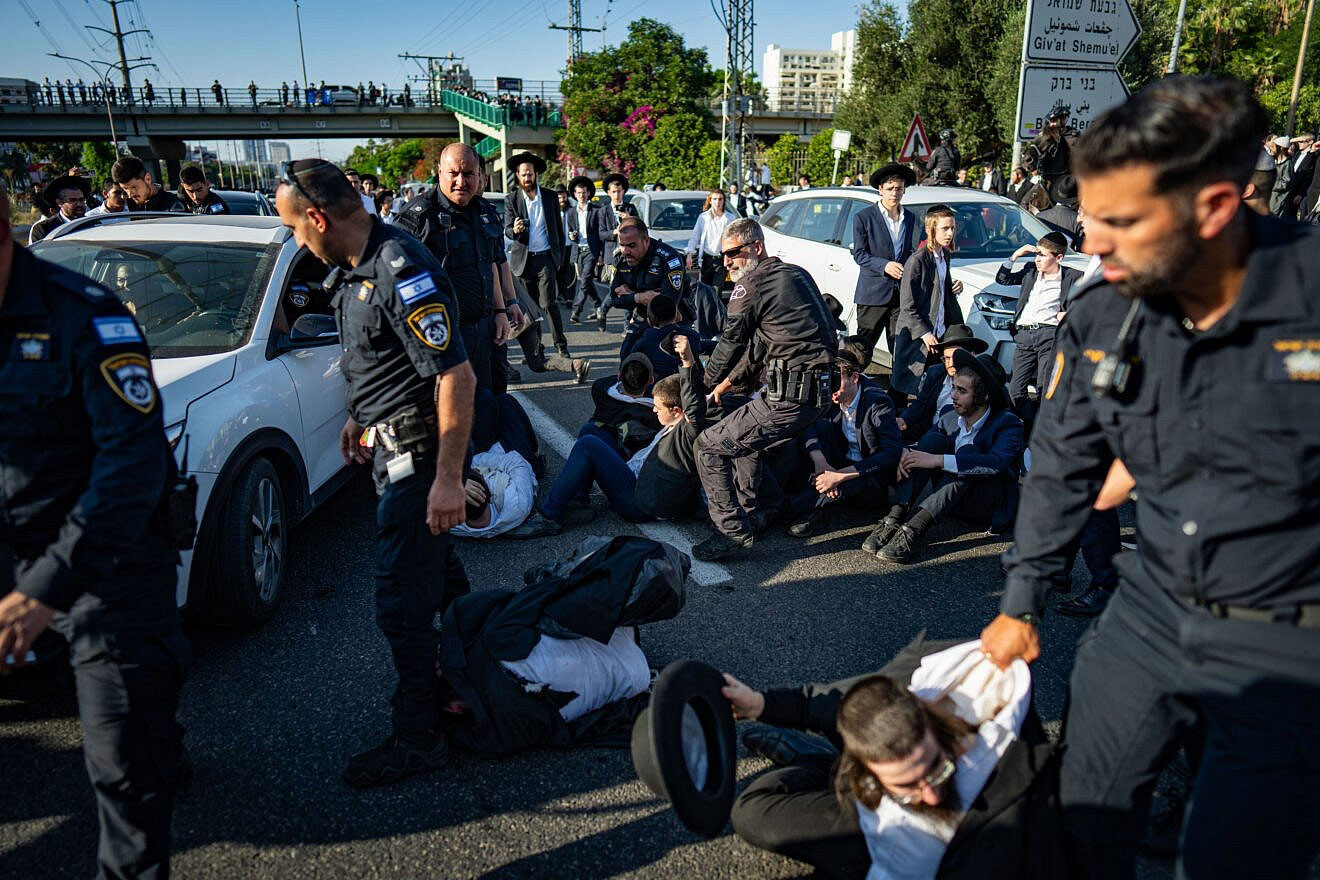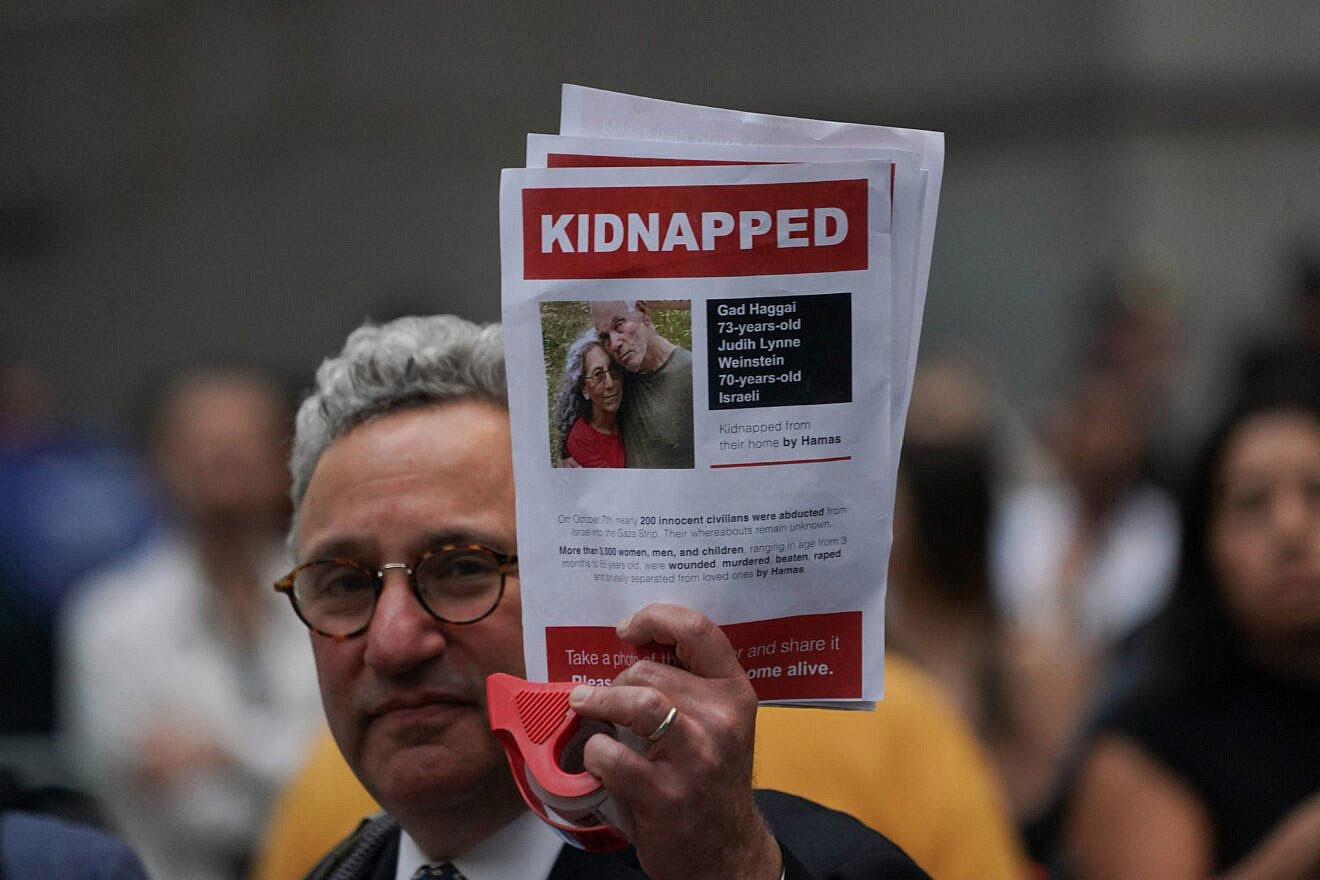(JNS) — Hamas has rejected the Israeli hostage-ceasefire deal, claiming that it is fundamentally different than the one presented by U.S. President Joe Biden on May 31, the Saudi daily Asharq al-Awsat reported on Thursday.
The Gaza-based terror group sent a clarification memorandum to the Palestinian terror factions on Wednesday, the text of which was seen by the news outlet. It claims that the current proposal “does not promise a permanent ceasefire, the occupation’s forces will remain in Gaza, and when they receive the hostages, they will renew the destruction against our nation.”
Hamas is demanding an end to the war and the withdrawal of Israeli troops from the Strip, two conditions Jerusalem rejects. The Israeli War Cabinet’s goals remain the same: returning the hostages, defeating Hamas as a military and political force in Gaza and ensuring that Gaza can never again threaten Israel. Hamas has pledged multiple repeats of its Oct. 7 atrocities.
Hamas spokesman Jihad Taha confirmed to the Qatari news outlet Al-Araby Al-Jadeed the terrorist group’s demands for a permanent ceasefire and a comprehensive Israeli withdrawal.
Qatar’s foreign ministry said on Tuesday that it had handed Biden’s three-phase ceasefire proposal to Hamas, and that the document is “much closer” to the positions of both sides.
An Israeli official told Kan News on Thursday that Jerusalem has not received a formal reply from Hamas regarding the proposal.
The War Cabinet decided on Wednesday not to send a delegation to Qatar until Hamas provides a formal answer. The Cabinet was again scheduled to meet on Thursday night, but that meeting was canceled, along with a broader Security Cabinet meeting.
Al-Araby Al-Jadeed reported on Thursday that discussions have started in Cairo between senior Egyptian officials and Palestinian terror factions on the day after the war in Gaza. At the same time, a delegation of Egyptian intelligence officials arrived in Ramallah to meet with senior Palestinian Authority officials about a potential role they could play in post-war Gaza.
A U.S. official in Cairo told Al-Araby Al-Jadeed that “the American administration has finally settled on the need for the next day’s talks to stop the war to go in parallel with the ceasefire negotiations,” stressing that CIA Director William Burns and U.S. Middle East adviser Brett McGurk are visiting the region this week for that purpose.
U.S. National Security Advisor Jake Sullivan said on Tuesday “the ball is in Hamas’s court.”
“We are waiting for a response from Hamas,” said Sullivan. He acknowledged that the terror group in Gaza might well choose to continue the conflict instead.
“That wouldn’t be terribly out of character for a vicious and brutal terror group, but what we hope they do in the end is see that the best pathway to an end to this war, the return of all the hostages, a surge of humanitarian assistance, is to accept this proposal,” he added.
“The onus is on Hamas and will remain on Hamas until we get a formal response from them,” said Sullivan.
The Biden envoy also clarified that Israel had accepted the deal when a reporter suggested otherwise.
“I take issue with the end of your question when you said Israel rejected the proposal,” said Sullivan. “The prime minister’s own adviser went out publicly and said they accepted the proposal. They have reaffirmed that they have accepted the proposal…[it] is a proposal Israel accepted before and continues to accept today. The ball is in Hamas’s court,” he added.
In an interview with Time magazine published on Tuesday, Biden said that Israeli Prime Minister Benjamin Netanyahu was under “enormous pressure” to forge a ceasefire deal with Hamas.
“The last offer Israel made was very generous in terms of who [Palestinian prisoners] they’d be willing to release, what they’d give in return, et cetera. Bibi [Netanyahu] is under enormous pressure on the hostages…and so he’s prepared to do about anything to get the hostages back,” said Biden.
Freeing the hostages is the main reason the White House is pushing for a ceasefire, Biden said.
Hostage families call for pressure on Hamas
On Thursday, The Hostages Families Forum released a statement calling for additional pressure to be applied on Hamas to agree to the deal.
“After eight months, the Israeli government has proposed a deal, with support from the international community. A deal that aims to bring all the hostages home — the living for rehabilitation and the murdered for burial,” the statement reads.
“The recent tragic news of the murder of four hostages — Chaim, Yoram, Amiram and Nadav—who were kidnapped alive, highlights the urgent need for an immediate resolution. Their deaths serve as a reminder that each day in captivity puts the lives of the remaining hostages at grave risk.
“The negotiating parties have a moral and ethical obligation, supported by the mediators and the international community, to apply the necessary pressure on Hamas to accept the proposed deal. Negotiating teams must convene immediately to bridge any gaps and finalize the agreement without delay.”
Eyal Kalderon, whose cousin Ofer Kalderon was abducted from Kibbutz Nir Oz on Oct. 7 and is still being held in Gaza, told JNS on Thursday that he hopes the reports regarding Hamas’s rejection of the ceasefire are wrong.
“I am hoping that this will not be Hamas’s official response because Israel gave a lot in this proposal, we are even willing to end the war at the end of the process, and we are very much hoping that Hamas will understand how good a deal this is,” he said.
“We demand from all sides, including the mediators, that they do everything to seal this deal. We will not accept failure because of minor details,” he added.
“If reports that Hamas rejected the deal are true, we would need to understand the cause for their rejection. If they were to ask for a clear declaration regarding the end of the war, we would demand our government make one,” he said.
However, he continued, “If Hamas demands the full withdrawal of IDF forces without returning the hostages in the first phase of the deal, we will not accept it.”
Yael Adar, whose son Tamir, 38, was declared dead in captivity in January, told JNS, “Unfortunately, nothing changes. I understand that we must wait, but all this waiting for Hamas’s answer to the Israeli proposal is unbearable.”
She expressed hope for a deal to “bring an end to the tragedy that the families are experiencing” and give them “hope for a different reality.”
Zvika Mor, whose 23-year-old son Eitan is being held by Hamas in Gaza, told JNS on Thursday, “I think that I knew before seeing reports that Hamas would not take this deal, because the terrorists want to maintain their sovereignty over Gaza and Israel cannot allow it to happen. As such…it was a bad deal for Hamas.”
Mor is the co-founder of the Tikva Forum for Families of Hostages, an alternative to the Hostages and Missing Families Forum.
In April, Mor organized a rally outside Israeli Prime Minister Benjamin Netanyahu’s residence in Jerusalem advocating for increased military pressure on Hamas by launching an operation in Rafah to destroy the terror group’s last bastion.
“Israel must keep pressing Hamas through military operations and we must keep fighting until we’ve achieved all the objectives of this war,” Mor told JNS. “That is, to destroy this terror organization and to release our hostages. Israel cannot allow Hamas to remain in Gaza,” he added.
World leaders back Biden proposal
Also on Thursday, leaders of 16 countries, including many whose citizens were taken hostage on Oct. 7, issued a statement backing Biden’s ceasefire proposal, calling on Hamas to “close this agreement.”
“There is no time to lose,” read the statement, which was signed by the leaders of Argentina, Austria, Brazil, Bulgaria, Canada, Colombia, Denmark, France, Germany, Poland, Portugal, Romania, Serbia, Spain, Thailand and the United Kingdom. The United States, too, signed the statement.
“As leaders of countries deeply concerned for the hostages held by Hamas in Gaza, including many of our own citizens, we fully support the movement towards a ceasefire and hostage release deal now on the table and as outlined by President Biden on May 31, 2024,” the text stated.
Noting that Jerusalem is “ready to move forward” with the terms proposed by Biden on Friday, the world leaders stressed that the deal would lead to an “immediate ceasefire and rehabilitation of Gaza together with security assurances for Israelis, and Palestinians, and opportunities for a more enduring long-term peace and a two-state solution.”





